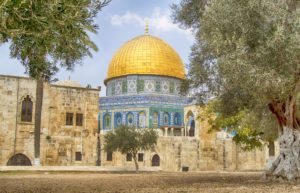
Share this Blog
Share
The Power of Dua'a and Ibadah
The Power of Dua'a and Ibadah
The Reality of Du’a
Literally, du’a’ means to call, and it is frequently used to call for something needed. On occasions, the dhikr of Allah (acts devoted to His remembrance) is also referred to as du’a’. This verse confers a special honor on the large community of the followers of the Holy Prophet (SAW) when they were ordered to make du’a’ with the assurance that it would be answered. And whoever does not make a prayer has been warned of punishment. Qatadah reports from Ka’b Ahbar that earlier this used to be peculiar to prophets, as they were the ones who were ordered by Allah Ta’ala that they should make du’a’ and He would answer. Now, it is the distinction of the followers of the Holy Prophet (SAW) (popularly identified as Ummah Muhammadiyyah) that this order was universalized for his entire Ummah. (Ibn Kathir)The Ruling for Du’a
In this verse under study, those who abandon du’a’ in the sense of ‘ibadah the warning of Jahannam given to them is in the eventuality of being too proud, that is, a person who, in his pride, considers himself in no need of making a du’a’ and actually abandons it, then, this is a sign of kufr (open infidelity), therefore, the warning of Jahannam became due against him. Otherwise, making of du’a’s, prayers and supplications as such is not fard (obligatory) or wajib (necessary). Leaving it off brings no sin. However, by a consensus of ‘ulama’, doing so is mustahabb (recommended) and is: أفضل (afdal: better, meritworthy) (Mazhari) and in accordance with clarifications in ahadlth, it is a source of many a barakah (blessing)للَّهُمَّ إِنِّي أَسْأَلُكَ الثَّبَاتَ فِي الأَمْرِ وَأَسْأَلُكَ عَزِيمَةَ الرُّشْدِ وَأَسْأَلُكَ شُكْرَ نِعْمَتِكَ وَحُسْنَ عِبَادَتِكَ وَأَسْأَلُكَ لِسَانًا صَادِقًا وَقَلْبًا سَلِيمًا وَأَعُوذُ بِكَ مِنْ شَرِّ مَا تَعْلَمُ وَأَسْأَلُكَ مِنْ خَيْرِ مَا تَعْلَمُ وَأَسْتَغْفِرُكَ مِمَّا تَعْلَمُ إِنَّكَ أَنْتَ عَلاَّمُ الْغُيُوبِ
“O Allah, I ask You for steadfastness in the affair and I ask You for determination upon guidance, and I ask You to make me grateful for Your favor, and excellence in worshiping You, and I ask You for a truthful tongue and a sound heart, and I seek refuge in You from the evil of what You know, and I ask You for the good of what You know, and I seek Your forgiveness for that which You know. Verily, You are the Knower of all that is hidden
[Jami` at-Tirmidhi 3407 – Hasan]
The prophet (SAW) gave to us the treasures of good deeds, excellent conduct, character, wonderful ethics, and morals. He also gave us a very important treasure; that is, the treasure of du’a. He (SAW) taught us how to make du’a and what types of things we should ask for in order to get the best of this world and the next. There is a sahabi by the name of Shaddad ibn Aus (RA) who was taught a dua by the Prophet (SAW). The first thing mentioned in this du’a is “O Allah, I ask You for steadfastness in the affair.” Steadfast in staying away from that which is haram and consistently do whatever is required for him so that he may get closer to Allah (SWT) and that he may not make a mistake where he might do something that would take him away from Allah (SWT). This is to be firm, strong and consistent in the commands of Allah (SWT).YOUR WEEKLY DOSE OF
rabbana aatina fi ad-dunya hasanatun wa fi al-aakhirati hasanatun wa qinaa adhab an-naar
“Our Lord, give us good in this world and good in the Hereafter, and save us from the punishment of Fire.”
[Surah Al-Baqarah (2) – Ayah 201]
Allahuma anta As-Salaam wa minka As-Salaam tabarakta ya Dhaljalali wa Al-Ikram
“O Allah, You are As-Salam, and from you is As-Salam. You are blessed, O One of Magnificence and Generosity”
[Sunan Abi Dawud 1512]
Share this Blog
Tuition Payment by Etransfer
Please send your etrasnfer in the full amount of your course tuition to
finances@ihsan.ca
IMPORTANT: The full name and email address you used to register for the course must be added as a note to the etrasnfer to assure the payment is applied to your account.